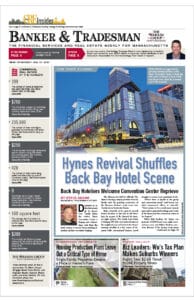Borrowing for small businesses was already constrained due to rising interest rates. Following the recent collapse of Silicon Valley Bank and Signature Bank, some lenders – particularly the small and midsize banks that serve small businesses – may be forced to tighten credit further, since they’re seeing an outflow of deposits, which means they need to retain capital. And banks are being more cautious in general due to uncertainty about the economy.
“It’s hard to read how severe this is going to be, but it’s certainly going to be significant and when you look at how things play out, small businesses are hit the hardest,” said Ray Keating, chief economist for the Small Business & Entrepreneurship Council.
According to the latest Biz2Credit Small Business Lending Index released in February, the approval rates of small business loan requests at big banks have fallen for nine consecutive months. The larger banks approved just 14.2 percent of applications in February, down from 28.3 percent in February 2020. Small banks granted about 20 percent of loan applications this February, but they were approving about half of all requests back in early 2020, before the pandemic hit. And companies that have existing lines of credit are seeing interest rates increase.
A credit crunch affects small businesses more than larger ones because smaller businesses have fewer levers they can pull to get financing.
An overall tightening of credit will help slow down the economy and ease inflation, which is what the Federal Reserve hopes to achieve by hiking interest rates, said Rohit Arora, CEO and co-founder of Biz2Credit. But that means that small businesses – a big job creator and source of innovation for the economy – will be left in the lurch.
“It will be the small companies that suffer the most if this continues,” he said.







